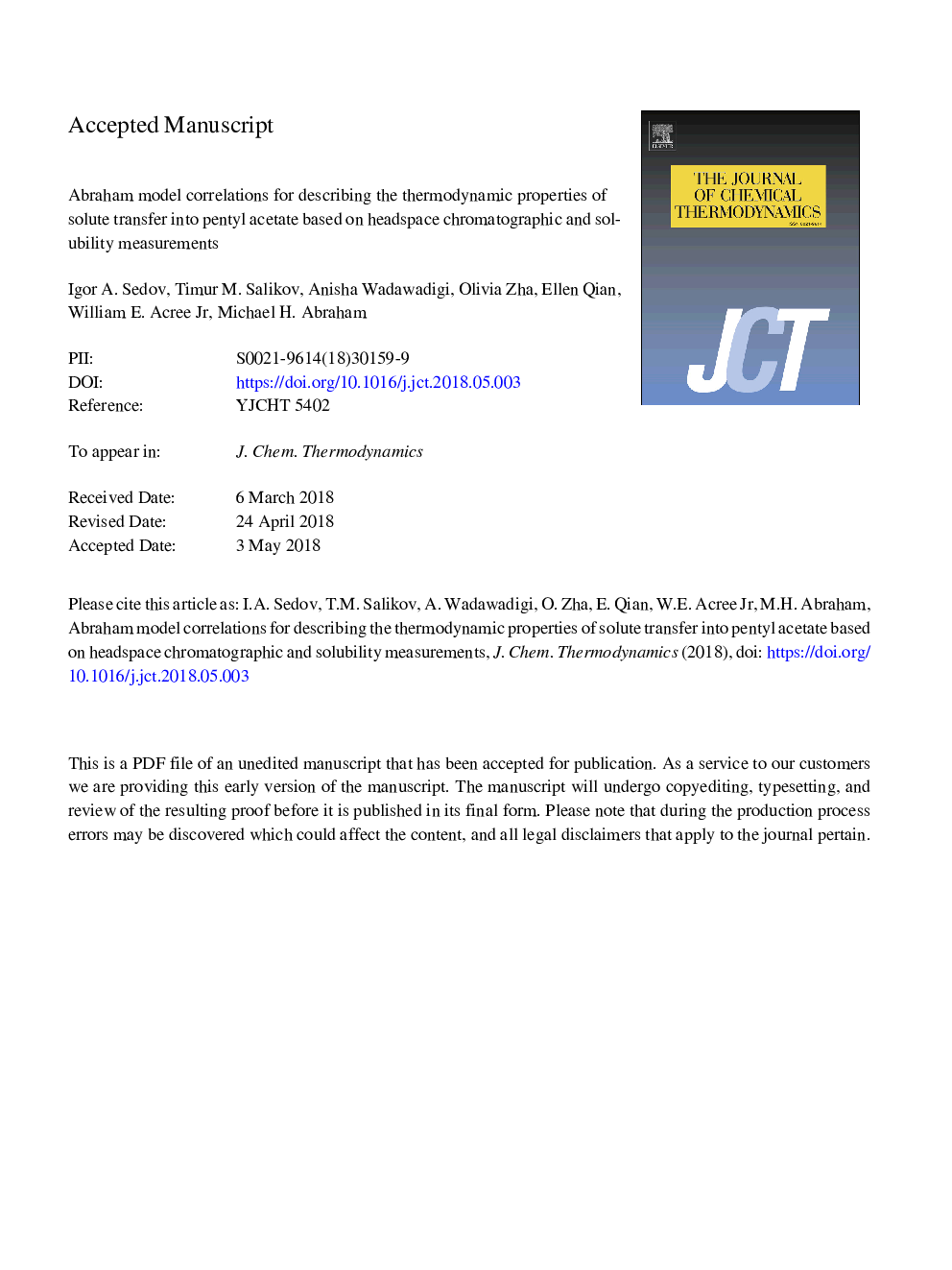| Article ID | Journal | Published Year | Pages | File Type |
|---|---|---|---|---|
| 6659680 | The Journal of Chemical Thermodynamics | 2018 | 32 Pages |
Abstract
Infinite dilution activity coefficients were measured for 32 liquid organic solutes dissolved in pentyl acetate at 298.15â¯K. The organic solutes included both saturated (hexane through decane, cyclohexane) and unsaturated hydrocarbons (1-hexene, 1-heptene, cyclohexene, 1-octyne, 1,7-octadiene), several substituted benzene derivatives (benzene, methylbenzene, ethylbenzene, propylbenzene, 1,3-dimethylbenzene, 1-dimethylbenzene, fluorobenzene, bromobenzene), four haloalkanes (trichloromethane, 1-chlorobutane, 1,2-dichloropropane, isopropyl bromide) and three alcohols (ethanol, 1-propanol, 2-propanol), as well six miscellaneous organic compounds (acetonitrile, ethyl acetate, tetrahydrofuran, 1,4-dioxane, propanone, nitromethane). Mole fraction solubilities were also determined for 10 crystalline nonelectrolyte organic solutes dissolved in pentyl acetate. Results of the experimental measurements were used to derive Abraham model correlations for describing thermodynamic properties of solute transfer into pentyl acetate. The derived Abraham model correlations mathematically described the observed data to within 0.12â¯log units (or less).
Related Topics
Physical Sciences and Engineering
Chemical Engineering
Chemical Engineering (General)
Authors
Igor A. Sedov, Timur M. Salikov, Anisha Wadawadigi, Olivia Zha, Ellen Qian, William E. Jr., Michael H. Abraham,
